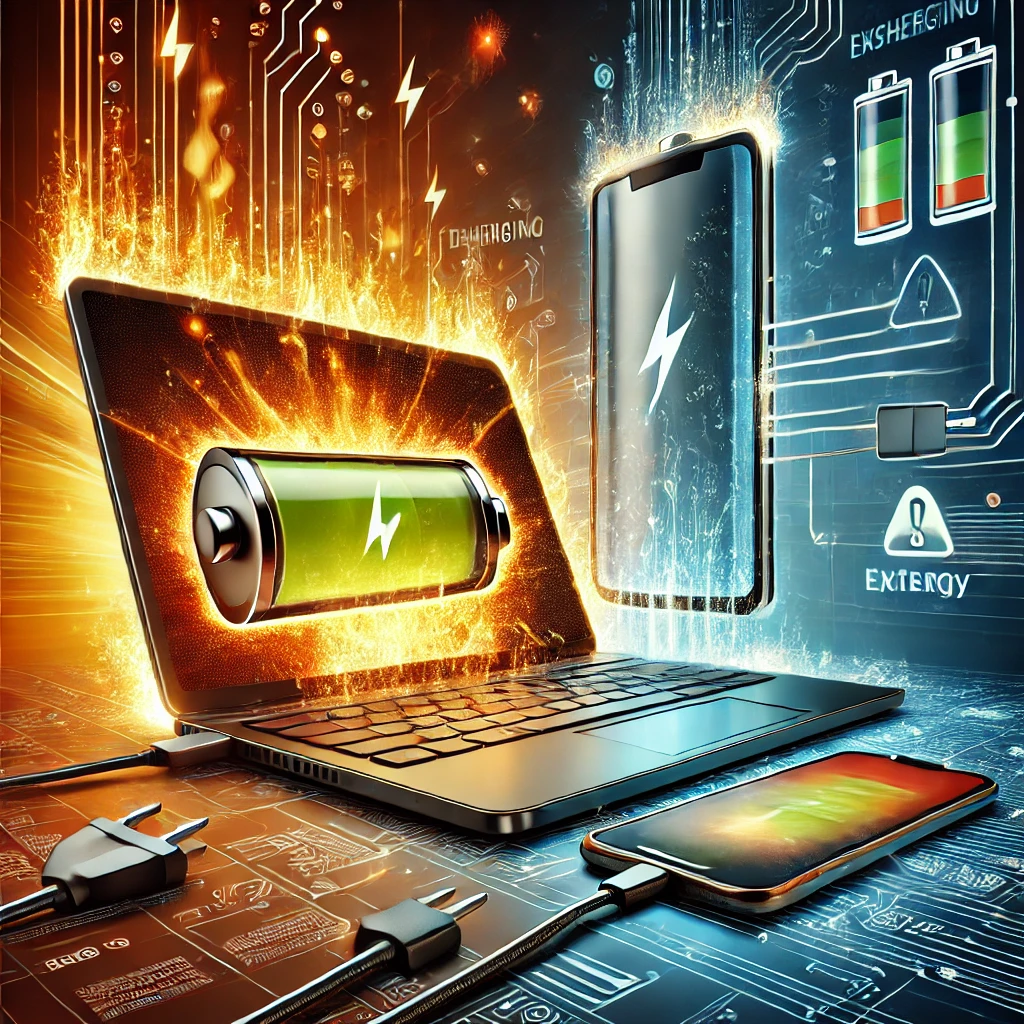
Today, these devices are an important part of our everyday life. But they can become corrupted if they are left plugged in too long. Knowing these damaging effects will allow you to use your devices responsibly for long usage. That’s an attempt to explain how overcharging affects batteries, how it causes them to overheat, and why there could even be a potential fire hazard. Learning about these problems can save you from unnecessary costs and help your devices work the best they can.
What Is Overheating?
If your device gets too hot while in use or charging, it’s overheating. This can happen because of too long continuous charging, heavy app usage, or direct sunlight exposure. If a device overheats, the internal components may be damaged, causing it to pull slower or, worse yet, fail permanently.
Signs of Overheating:
- The device feels very hot to the touch.
- Performance becomes sluggish.
- Unexpected shutdowns or restarts.
How to Prevent Overheating:
- Avoid using your device while charging.
- Keep it away from direct heat sources.
- Use apps and programs that are less demanding on the system.
- Ensure proper ventilation around your device.
Battery Degradation
Phones and laptops’ batteries don’t go forever. These are lithium-ion and have a limited number of charging cycles. It’s when you leave your device’s charge plugged in endlessly once it has been charged. As the battery wears down, chemical changes occur within the battery, causing it to become weaker and weaker. In turn, your device’s battery won’t last as long as it used to.
Overheating Due to Overcharging
When your phone or laptop stays connected to the charger for too long, it can get very hot. The extra heat can damage important parts inside the device, making it work slower or even stop working completely. Overheating can also cause the battery to expand, leading to permanent damage.
Reduced Battery Capacity
This is how much your battery can charge. So over time, the battery won’t hold a charge for very long, and then you’re gonna have to charge it more often. It is particularly annoying when you do need your device for essential functions.
Risk of Fire and Explosions
Overcharging can be dangerous and is rare. If a battery is faulty or overcharged frequently it can swell, leak, or even explode. This risk rises with cheap or fake chargers as well. That’s why it is always safer to use chargers recommended by the device manufacturer.
System Malfunctions
Charging your device too much can cause problems like sudden shutdowns, frozen screens, or slower performance. This happens because the battery gets damaged, which affects how the whole device works.
Increased Electricity Bills
Leaving your devices plugged in all the time also wastes electricity. This adds to your power bills and isn’t good for the environment. Energy conservation helps you save money and protect the planet.
How to Avoid Overcharging
- Use Quality Chargers: Use only original or certified chargers and never overcharge or have voltage problems.
- Unplug After Full Charge: If it’s fully charged disconnect your device.
- Enable Battery-Saving Modes: Accept and use power-saving features to try to cut back on how often you need to charge.
- Avoid Overnight Charging: Ideally, if you can supervise it, try and charge your device during the day.
- Keep Devices Cool: If your devices are not well-ventilated then they can overheat.
Conclusion
Your current modern phones and laptops have built-in systems to prevent overcharging, but you should still be vigilant. These tips will help keep your devices safer, help them last longer, and work better. You can also avoid the cost of repairs and keep using your gadgets for some time by taking a few simple steps.
Need Help?
If you are having issues of overheating, overcharging, or battery problems, visit us at Justfix Services. We repair and maintain your devices professionally so they never stop working like new ones. Contact Us Here to help you learn how we can help.